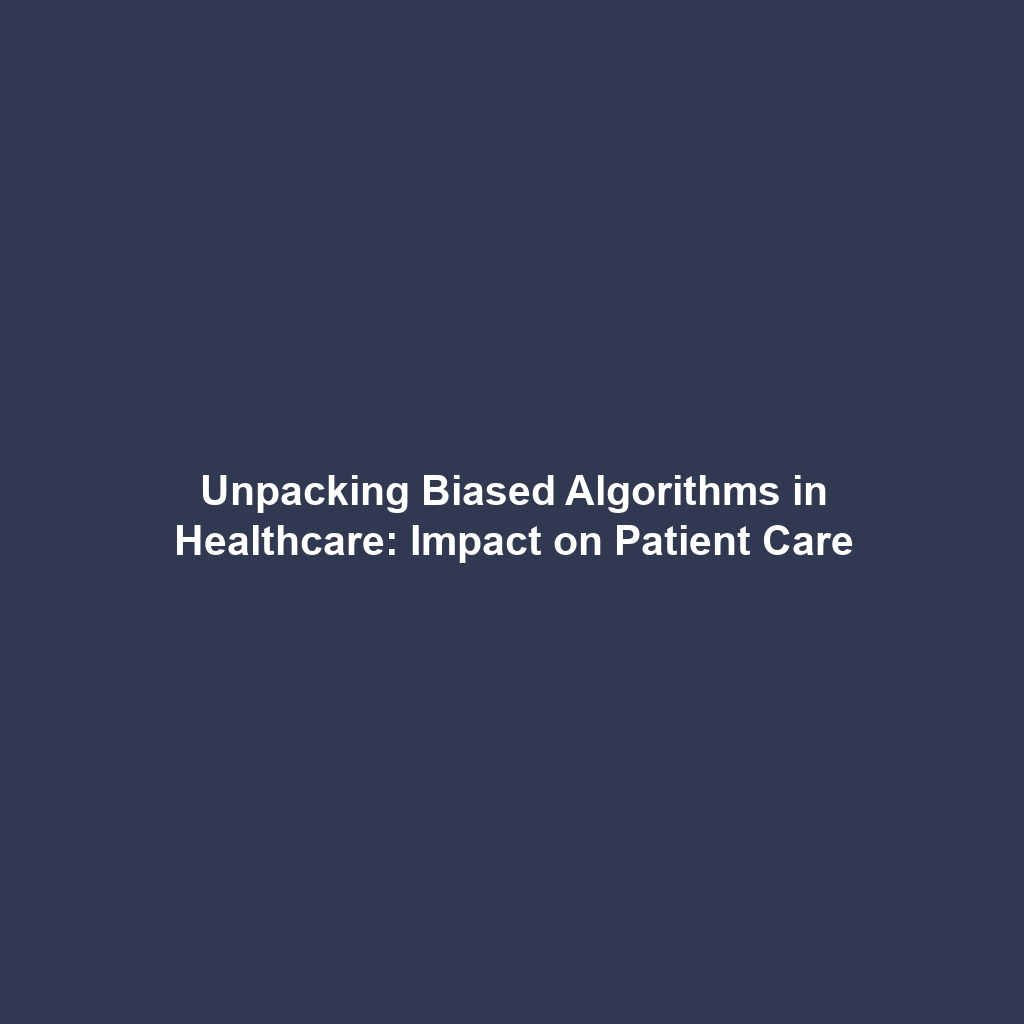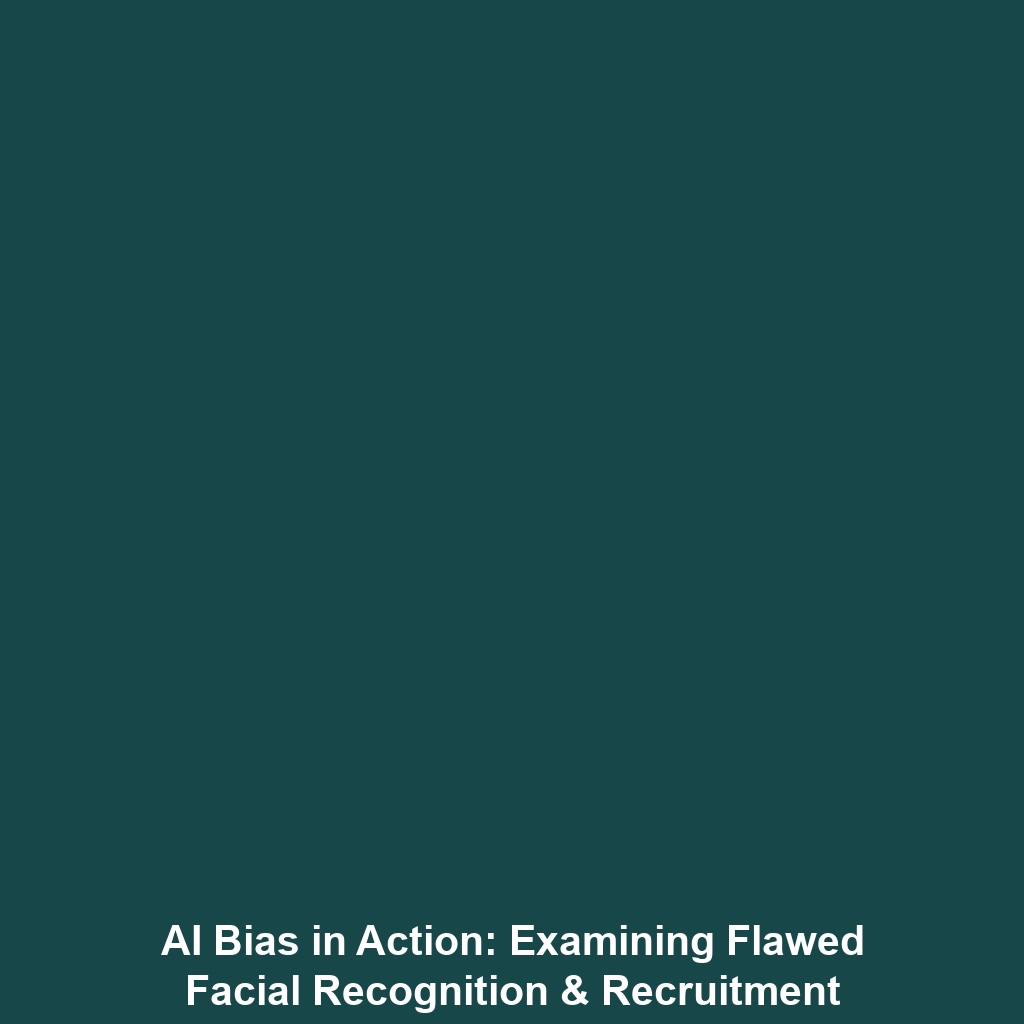The Risk of Biased Algorithms in Healthcare Affecting Patient Outcomes
Introduction
The increasing reliance on artificial intelligence (AI) in healthcare has brought forth significant advancements but has also raised critical ethical concerns. One of the most pressing issues is the risk of biased algorithms in healthcare affecting patient outcomes. Understanding this risk is essential as it can lead to disparities in treatment and care, ultimately influencing the overall quality of healthcare delivery. The importance of addressing these biases cannot be overstated, particularly in a field where decisions significantly impact human lives. This article delves into the intersection of AI ethics and healthcare outcomes.
Key Concepts
Several key concepts are crucial in exploring the risk of biased algorithms in healthcare and their ethical dimensions:
- Algorithmic Bias: This refers to systematic errors in algorithms that lead to unfair treatment of individuals based on race, gender, socioeconomic status, or other factors.
- Data Quality: Poor quality or unrepresentative training data can exacerbate biases, highlighting the importance of data diversity.
- Transparency and Accountability: Ethical AI practices demand that healthcare algorithms are transparent, and developers should be held accountable for their systems.
- Informed Consent: Patients must understand how AI tools affect their care and have a say in its deployment.
Applications and Real-World Uses
The risk of biased algorithms in healthcare has become increasingly evident in multiple real-world applications:
- Predictive Analytics: AI algorithms used to predict patient outcomes can perpetuate existing biases if not designed carefully.
- Diagnostic Tools: Algorithms assist in diagnosing diseases; however, biased algorithms can misdiagnose patients from underrepresented communities.
- Resource Allocation: Algorithms designed for triaging patients can discriminate based on biased data leading to inequitable healthcare access.
Understanding how biased algorithms influence patient outcomes is critical in assuring equitable healthcare delivery.
Current Challenges
Addressing the risk of biased algorithms in healthcare presents several challenges, including:
- Data Representation: Many datasets used for training AI systems are not representative of diverse populations.
- Lack of Standardization: There is no universally accepted framework for evaluating algorithmic bias in healthcare.
- Resource Limitations: Many healthcare organizations lack the resources necessary to investigate and rectify biases in algorithms.
- Stakeholder Awareness: Insufficient awareness among stakeholders about the impacts of biased algorithms can slow progress towards solutions.
Future Research and Innovations
Future research on the risk of biased algorithms in healthcare promises innovative strategies to mitigate bias:
- Enhanced Data Collection Methods: Developing methodologies for inclusive data collection to better represent diverse populations.
- Algorithm Auditing: Implementing regular algorithmic audits to identify and address biases promptly.
- Next-Gen Technologies: Advancements in AI explainability could lead to better interpretations of algorithm decisions, increasing accountability.
Ongoing research and innovation in this area are crucial to shaping a more equitable healthcare landscape.
Conclusion
The risk of biased algorithms in healthcare affecting patient outcomes represents a significant ethical dilemma within AI ethics. Addressing algorithmic bias is imperative to ensure fair treatment across all demographics. It is vital for healthcare professionals, policymakers, and technologists to engage in dialogues aimed at enhancing transparency, accountability, and inclusiveness in AI deployment. For further insights into AI and healthcare ethics, consider exploring related topics on Algorithm Transparency and Ethics of AI in Medicine.

